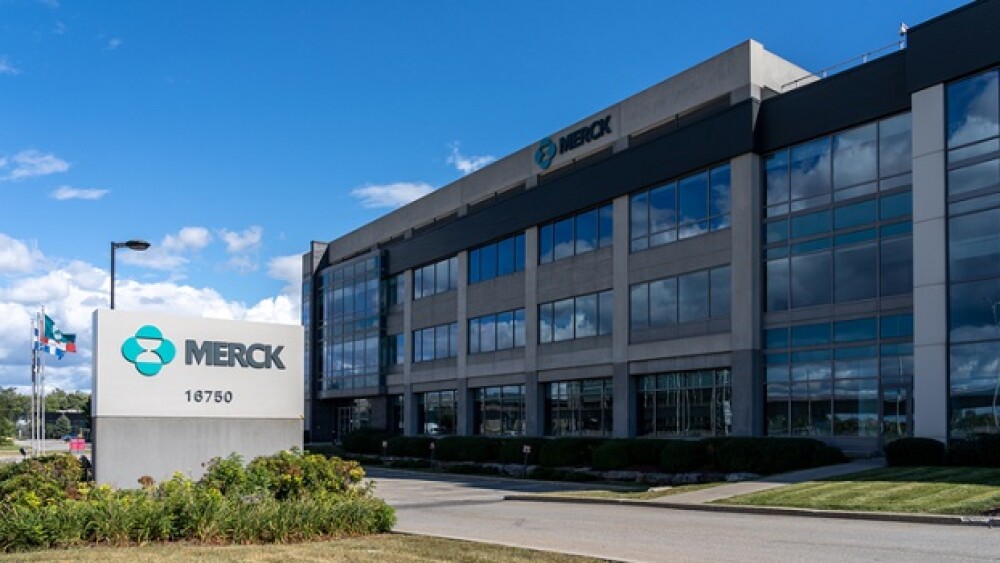Results from two late-stage trials showed the Merck-Eisai combo treatment failed to boost survival in two difficult-to-treat advanced cancers.
Pictured: Glass front and sign of a Merck building / iStock, JHVEPhoto
Results from two late-stage trials posted Friday showed Merck’s Keytruda (pembrolizumab), in combination with Eisai’s Lenvima (lenvatinib), failed to boost survival in two difficult-to-treat advanced cancers.
In a planned interim analysis of the Phase III LEAP-003 study, the combination regimen did not lead to a statistically significant and clinically meaningful improvement in overall survival (OS), compared with Keytruda plus placebo, when used as first-line treatment in patients with unresectable or metastatic melanoma.
These results follow an earlier interim analysis, in which Keytruda plus Lenvima met LEAP-003’s induced a significant improvement in progression-free survival (PFS) relative to placebo.
Following the recommendation of an independent data monitoring committee, the pharma partners are discontinuing the study.
The pharma partners also reported Friday results from the LEAP-017 trial, a Phase III, randomized, open-label study of patients with unresectable and metastatic colorectal cancer who had either become intolerant or saw disease progression after prior therapy.
A pre-specified analysis of LEAP-017 showed that treatment with Keytruda plus Lenvima resulted in a marginal improvement in OS compared to the standard of care. This effect, however, fell short of statistical significance.
LEAP-017 likewise did not meet its key secondary endpoints. The companies have not announced plans for this program.
LEAPs and Blunders
Merck’s and Eisai’s cancer collaboration began in 2015 when the two companies signed a clinical trial partnership to assess the combination of the former’s anti-PD-1 therapy with the latter’s RTK inhibitor in various oncology indications.
The partnership has since won regulatory approval in two cancers: endometrial carcinoma in September 2019 and renal cell carcinoma in August 2021.
But the LEAP program has stumbled over the years.
In July 2020, the FDA refused to grant accelerated approval to the Keytruda-Lenvima combo in unresectable hepatocellular carcinoma (HCC). Merck and Eisai supported their regulatory bid with data from the Phase Ib KEYNOTE-524/Study 116 trial. Still, the regulator deemed the data insufficient to establish a meaningful advantage of the combination regimen over currently available therapies.
The companies tried their luck at full approval with the LEAP-002 Phase III trial, a well-controlled study that assessed Keytruda plus Lenvima as a frontline option for advanced HCC. In August 2022, the companies reported that LEAP-002 did not meet its dual endpoints of OS and PFS.
Tristan Manalac is an independent science writer based in metro Manila, Philippines. He can be reached at tristan@tristanmanalac.com or tristan.manalac@biospace.com.






